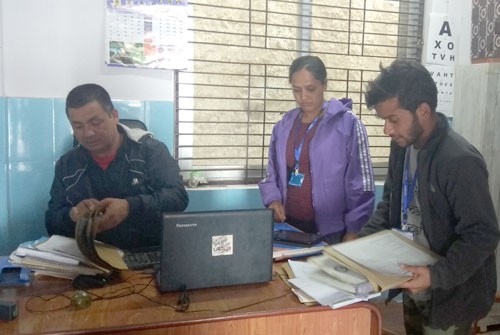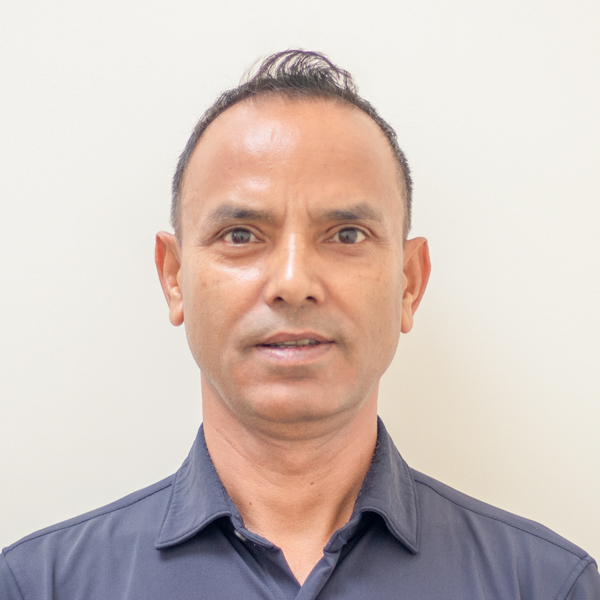Background
In line with the constitution of Nepal (2007) which enshrined health as the basic right of citizens, the Government of Nepal (GoN), Ministry of Health (MoH) provisioned essential health care services to be delivered free of cost at the point of use since 2008. Expansion of free care has led to many other initiatives i.e. Aama and Newborn Surakshya Program, Uterine Prolapse etc. To provide access to health care beyond the free care and to reduce out of pocket expenditure which currently stands at more than 50% of the total health expenditure, since 2015 the GoN has rolled out a Social Health Insurance scheme throughout the country in a phase wise manner. In 2017/2018 the program is slated to cover 25 districts. The Nepal Health Sector Strategy (NHSS) 2016-2021 guides priority activities in the health sector. It has set improving the efficiency, economy and transparency of procurement and supply chain of essential medicines and equipment as one of the outcome objectives.
With Financial support from USAID, HERD International is implementing this study to identify facilitators and barriers in procurement and supply chain management and prescribing patterns of providers. The findings will ultimately help to inform the existing PSM of essential drugs and commodities at all three tiers of the governments: Federal, provincial and local, and suggesting a re-structuring of the functions considering the federal context to ensure the essential drugs are available at the point of care.
Overall purpose of the project:
To examine the factors that associate to the stock out of free essential medicines at government health facilities.
Specific Objectives:
The specific objectives of the study are as follows:
- To identify the top five factors associating to the stock out.
- To examine medicine prescription practices by the health provider
- To examine medicine dispensing practices at health facilities
- To assess client’s demand for medicines and user- factors that may potentially associate to stock outs.
- To explore the procurement and supply chain management mechanisms of drugs in the federal context.
Project focal person
Project’s focal person is Dr. Chandani Kharel
Methodology
Methodology that we plan to employ is a mixed method study, both qualitative and quantitative approaches to collect and analyze data. A total of 272 health facilities have been selected across 7 provinces to enumerate in this study. Quantitative research through structured questionnaire aided interviews will be conducted. A total of 420 exit client interview will be conducted in selected 272 health facilities, 168 observation of client-health worker interaction will be conducted and 420 prescription audit will be conducted to help us identify the number and types of medicines and antibiotic prescribed. Qualitative data collection through semi-structured interviews (SSIs) will be conducted. A total of 76 SSI will be conducted, 10 at central level, 14 at provincial level, 27 district level/local level, 7 at PHCC level and 18 at HP level.
Study Coverage
Province 1, Districts – Sunsari, Sankhuwasabha, Ilam
Province 2, Districts – Siraha, Saptari, Sarlahi
Province 3, Districts – Kavre, Makwanpur, Nuwakot
Province 4, Districts – Mustang, Manang, Baglung
Province 5, Districts – Kapilbastu, Arghakhanchi, Nawalparasi
Province 6, Districts – Mugu, Humla, Dolpa
Province 7, Districts – Doti, Bajura, Dadeldhura
Associated Team Members
Abriti Arjyal
Research Manager - Qualitative and Multidisciplinary ScienceAbriti Arjyal
Research Manager - Qualitative and Multidisciplinary ScienceAppointed as the lead of Research, Innovation and Development Department Key Expertise Ms. Abriti Arjyal works as Research Manager – Multidisciplinary Qualitative Research – at HERD International and has experience in the area of public health, health system and service delivery research, social science and gender, and equity. She is an emerging young researcher with more than seven years of experience leading formative and operational field studies, evaluation studies, and literature reviews, with expertise in design and implementation of qualitative research, and [...]
Learn moreSushil Chandra Baral
Managing DirectorDr. Sushil Chandra Baral is an experienced health and development expert with over 25 years of experience in research and development. Specializing in health systems, health policy, and planning at both national and international levels, Dr. Baral has played a pivotal role in communicable disease control, specifically Tuberculosis. He serves as a Managing Director at HERD International. In the past, he worked as a Strategic Advisor for the Nepal Health Sector Support Programme demonstrating expertise in program-based operational research and [...]
Learn moreShophika Regmi
Senior Manager: Health System Research, Evaluation and LearningShophika Regmi
Senior Manager: Health System Research, Evaluation and LearningAppointed as the lead for Systems, Policy and Programme Department Ms. Shophika Regmi has been working in health and social research for more than a decade. Throughout this period, she has led research projects of various natures and scales, particularly in the health sector. She possesses extensive experiences in implementation research using participatory action approaches, designing and executing evaluation studies, national level surveillance study, and large-scale survey across diverse areas such as health system strengthening, urban health, health workforce, non-communicable [...]
Learn moreSaugat Pratap KC
Knowledge Management OfficerMr. Saugat Pratap KC is a professional committed to improving healthcare in Nepal through research and knowledge management. With over five years of hands-on experience, Saugat possesses profound understanding of a range of critical health issues, including Family Planning, Non-communicable diseases, Maternal and child Health, Antimicrobial Resistance, Health financing and health system strengthening. After completing his Bachelor’s degree in International Relations and Development from Thailand, Mr. KC pursued his Master’s in Public Health from Bangladesh’s James P. Grant School of [...]
Learn moreProject Location
Similar Projects
Introduction This is a multi-country and multi-method study that aims to test the feasibility, cost and appropriateness of three novel ...
Background Menstrual hygiene management (MNH) challenges faced by girls in low-income countries are receiving increasing attention as ...
Background The project was conducted in coordination with Save the Children, American Red Cross and NSET. The project was conducted to ...
INSPIRE2CARE PROGRAM – A comprehensive study of household, health facility and disability assessment
Background Good health and wellbeing is one of the key component for sustainable development. Due to concerted efforts from government ...
Background The WHO Violence and Injury Prevention Programme and the Global Alliance for Clean Cookstoves funded this pilot field test ...
Shifting tasks to mid-level health workers has been recommended as an effective strategy to provide care in rural and remote areas ...
Background HERD International undertook this study to assess the interventions of Karuna Foundation Nepal which focused on Education, ...
Central Bureau of Statistics (CBS), on behalf of Ministry of Federal Affairs and Local Development (MoFALD) and Ministry of Urban ...
Background Menstrual hygiene management (MNH) challenges faced by girls in low-income countries are receiving increasing attention as ...




